[13-person team, pick-up from city hotels] Departing from Tokyo! Kamakura Buddha, Tsurugaoka Hachimangu Shrine, Enoshima Day Tour
- Beginners welcome - First try
- Empty-hands OK
- Pick-up & Drop-off
- Solo participant
- Operate rain or shine
- Children welcome
- 24'~25' New Year's Campaign Sale
-
Possible number of bookings1~13
-
Participating age1Age ~ 70 Age
-
DurationOver 6 hours on the day
Escape the hustle and bustle of Tokyo and experience the charm of history, culture, mountains and sea on a day trip to Kamakura. Start with a visit to the highlight of Kamakura, the Great Buddha. This magnificent bronze statue stands at 13.35m and is a symbol of Japan's rich Buddhist culture and the second tallest bronze Buddha in the country (own admission fee). Next, board the charming Enoden train, which is more than 100 years old. Passing through the sights and streets of Kamakura along the Shonan coast, you will explore the unique atmosphere and color of the place. Stop at Kamakura High School, experience the iconic railway crossings and roads, and stroll along the beach to soak up the sunshine and listen to the sound of the waves. If the weather is good, you may even be able to see Mount Fuji directly. Then, visit Enoshima Shrine, built by the imperial order of Emperor Kinmei in 552. See the colorful eight-armed Benzaiten, the nationally designated cultural asset of the Eight-Treasure Turtle by Fujiwara Masahiro, and the bronze torii gate that is said to be the origin of Enoshima. Finally, head to Tsurugaoka Hachimangu Shrine in Kamakura to visit a shrine that embodies the spirit of Japan. See the magnificent torii gates, beautiful gardens, and historical architecture that are symbols of samurai heritage and prosperity, and immerse yourself in traditional ceremonies and tranquil surroundings. Finally, stroll along Komachi-dori, which runs from Tsurugaoka Hachimangu Shrine to Kamakura Station. Enjoy the atmosphere of this bustling old street, which stands out in the heart of the ancient city. ~Schedule of the day~ 7:00 Pick up from hotel in 12 wards of Tokyo (Pick up and drop off at hotel/private inn) 10:00 Kamakura Daibutsu 10:50 Enoshima train 11:00 Kamakura High School 11:50 Enoshima/Enoshima Shrine 14:30 Tsurugaoka Hachimangu Shrine/Komachi-dori 15:30 Return 17:30 End of the schedule (Guests who are taking the course to pick up and drop off at a hotel/private inn should wait for the shuttle bus. When the shuttle bus arrives, it will take you back to your hotel/private inn and the tour will end.)
Ride the charming Enoden train, which boasts over 100 years of history. Passing through the sights and streets of Kamakura along the Shonan coast, you'll explore the unique character and color of the area. Stop at Kamakura High School, experience the iconic railway crossings and roads, and stroll along the beach to soak up the sunshine and listen to the sound of the waves. If the weather is good, you might even be able to see Mt. Fuji directly.
Select your preferred day
- Immediate booking OK!
- Reception closed
- Not accepted
- Request booking
About fees
Basic fee
Optional fee
※The list price includes tax.
※The above price is a basic fee.
※Fees may vary depending on schedule, please check the fee displayed after selecting the date.
| Included in price | |
|---|---|
| Not included in price |
| Payment methods |
|
|---|---|
| Display of the Specified Commercial Transactions Act | Display of the Specified Commercial Transactions Act |
| Reservation cancellation fee generation date | Cancellation fee will be charged from 3 days before the event date. |
| About cancellation | Please note that if you cancel for your own reasons, the following cancellation fees will be charged: Cancellation 3 to 2 days in advance: 50% Cancellation the day before: 100% Cancellation on the day: 100% Cancellation without permission: 100% |
| About event termination | The tour will be canceled if severe weather conditions are expected, such as an approaching typhoon. |
Detailed information of this plan
| Required minimum number of participants | 1 Person(s) |
|---|---|
| Possible number of bookings | 1~13 |
| About duration |
Over 6 hours on the day
9.5 hours (5.5 hours actual experience time)
|
| Operating period | All-year-round |
| Assembly time | Please arrive 10 minutes prior to your reservation time. |
| Booking deadline | until 22:59 the day before |
| Changing room | Toilet | ||
|---|---|---|---|
| Shower | Parking | ||
| Locker |
| Dress code - Must bring items | nothing special |
|---|
| Matters require attention | 1) Please note that the itinerary schedule may be adjusted due to weather, road conditions, and other reasons. 2) At around 9:00 p.m. on the day before departure, you will receive basic information including the guide's phone number and car plate number by email. Please make sure you can check it from email or mobile phone. 3) If you have a tattoo, please use a skin-colored sticker to cover the tattoo so that you can enter the hot spring. This course is not recommended for pregnant women or those with mobility issues. 4) This course does not include meals. 5) Children under 3 years old are free if they do not occupy a seat. Please let us know in advance. Children over 3 years old are charged the same as adults. 6) The type of vehicle used for the day trip will be adjusted according to the number of participants and the situation on the day. Please note. 7) One piece of free checked baggage allowance will be checked in free of charge. If you have baggage that exceeds the free baggage allowance, you will be charged an excess baggage fee (2,000 yen/piece) separately. |
|---|
Plan attractions
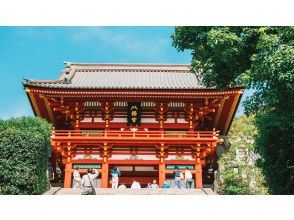
Tsurugaoka Hachimangu Shrine Tsurugaoka Hachimangu Shrine, formerly known as Kamakura Hachimangu Shrine, was the central religious center and patron saint of the samurai during the Kamakura Shogunate period (1192). It is also closely associated with the first Shogun of Kamakura and is quite famous in the Kanto region.
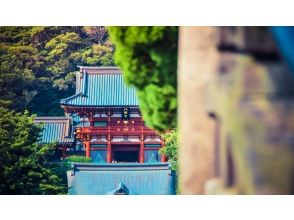
Tsurugaoka Hachimangu Shrine Tsurugaoka Hachimangu Shrine, formerly known as Kamakura Hachimangu Shrine, was the central religious center and patron saint of the samurai during the Kamakura Shogunate period (1192). It is also closely associated with the first Shogun of Kamakura and is quite famous in the Kanto region.
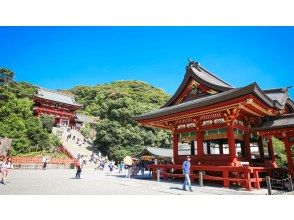
Tsurugaoka Hachimangu Shrine Tsurugaoka Hachimangu Shrine, formerly known as Kamakura Hachimangu Shrine, was the central religious center and patron saint of the samurai during the Kamakura Shogunate period (1192). It is also closely associated with the first Shogun of Kamakura and is quite famous in the Kanto region.
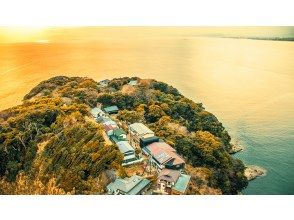
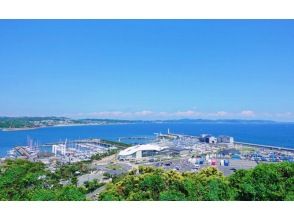
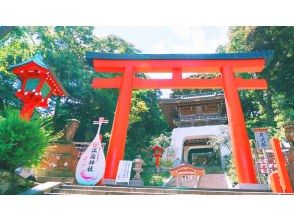
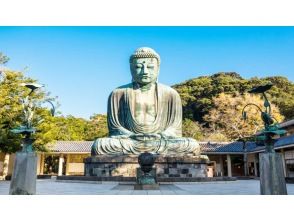
The Great Buddha of Kamakura The Great Buddha of Kamakura is a bronze statue of the seated Amida Nyorai Buddha at Kotoku-in Temple of the Jodo sect in the ancient capital of Kamakura, commonly known as the Great Buddha of Kamakura. The Great Buddha of Kamakura is 11.3 meters tall, 13.35 meters tall including the pedestal, and weighs approximately 121 tons. The statue was made in 1252 and has a flat face, low bun, and leans forward. The posture imitates the Buddhist statues of the Song Dynasty that were popular during the Kamakura period, and it is a representative Buddhist statue of the Kamakura period and is designated as a national treasure.
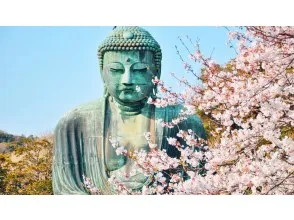
The Great Buddha of Kamakura The Great Buddha of Kamakura is a bronze statue of the seated Amida Nyorai Buddha at Kotoku-in Temple of the Jodo sect in the ancient capital of Kamakura, commonly known as the Great Buddha of Kamakura. The Great Buddha of Kamakura is 11.3 meters tall, 13.35 meters tall including the pedestal, and weighs approximately 121 tons. The statue was made in 1252 and has a flat face, low bun, and leans forward. The posture imitates the Buddhist statues of the Song Dynasty that were popular during the Kamakura period, and it is a representative Buddhist statue of the Kamakura period and is designated as a national treasure.
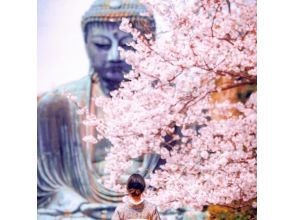
The Great Buddha of Kamakura The Great Buddha of Kamakura is a bronze statue of the seated Amida Nyorai Buddha at Kotoku-in Temple of the Jodo sect in the ancient capital of Kamakura, commonly known as the Great Buddha of Kamakura. The Great Buddha of Kamakura is 11.3 meters tall, 13.35 meters tall including the pedestal, and weighs approximately 121 tons. The statue was made in 1252 and has a flat face, low bun, and leans forward. The posture imitates the Buddhist statues of the Song Dynasty that were popular during the Kamakura period, and it is a representative Buddhist statue of the Kamakura period and is designated as a national treasure.
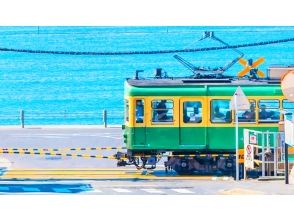
Kamakura High School Kamakura High School is a school located in Kamakura City, Kanagawa Prefecture, and is the prototype for Reinan High School in "Slam Dunk." The intersection close to the station is the location of the classic scene where Sakuragi Hanamichi greets Akagi Haruko. Standing at the intersection, the sound of the bells ringing will bring back memories of the hot youth of Slam Dunk.
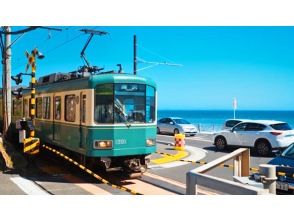
Kamakura High School Kamakura High School is a school located in Kamakura City, Kanagawa Prefecture, and is the prototype for Reinan High School in "Slam Dunk." The intersection close to the station is the location of the classic scene where Sakuragi Hanamichi greets Akagi Haruko. Standing at the intersection, the sound of the bells ringing will bring back memories of the hot youth of Slam Dunk.
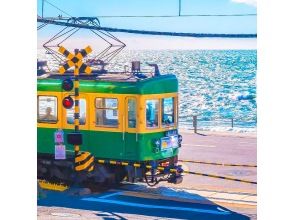
Kamakura High School Kamakura High School is a school located in Kamakura City, Kanagawa Prefecture, and is the prototype for Reinan High School in "Slam Dunk." The intersection close to the station is the location of the classic scene where Sakuragi Hanamichi greets Akagi Haruko. Standing at the intersection, the sound of the bells ringing will bring back memories of the hot youth of Slam Dunk.
Time schedule
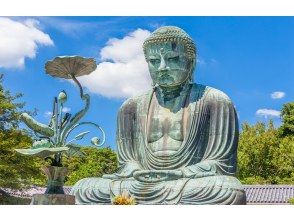
The Great Buddha of Kamakura The Great Buddha of Kamakura is a bronze statue of the seated Amida Nyorai Buddha at Kotoku-in Temple of the Jodo sect in the ancient capital of Kamakura, commonly known as the Great Buddha of Kamakura. The Great Buddha of Kamakura is 11.3 meters tall, 13.35 meters tall including the pedestal, and weighs approximately 121 tons. The statue was made in 1252 and has a flat face, low bun, and leans forward. The posture imitates the Buddhist statues of the Song Dynasty that were popular during the Kamakura period, and it is a representative Buddhist statue of the Kamakura period and is designated as a national treasure.
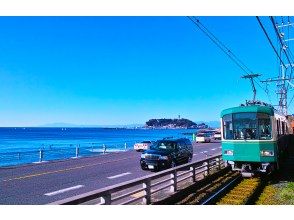
Enoden The Enoden is a streetcar that connects Fujisawa and Kamakura. It covers almost all of Kamakura's famous sites and also allows you to enjoy the beautiful scenery of the Shonan coast. The Enoden is a representative form of transportation that is indispensable when talking about Kamakura. Scenes of trains passing by at breakneck speeds often appear in major Japanese movies and anime. Therefore, in addition to watching it from afar, you can also experience the fun of riding the Enoden yourself.
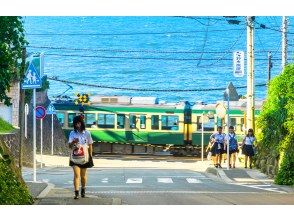
Enoden The Enoden is a streetcar that connects Fujisawa and Kamakura. It covers almost all of Kamakura's famous sites and also allows you to enjoy the beautiful scenery of the Shonan coast. The Enoden is a representative form of transportation that is indispensable when talking about Kamakura. Scenes of trains passing by at breakneck speeds often appear in major Japanese movies and anime. Therefore, in addition to watching it from afar, you can also experience the fun of riding the Enoden yourself.
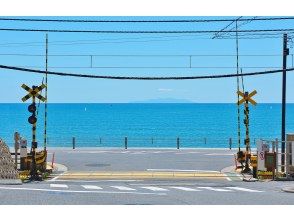
Kamakura High School Kamakura High School is located in Kamakura, Kanagawa Prefecture, Japan, and is the prototype of Reinan High School in "Slam Dunk". The intersection near the station is the location of the classic scene where Sakuragi Hanamichi greets Akagi Haruko. Standing at the intersection, the sound of the bells ringing also brings to mind the hot youthful memories of Slam Dunk. Now, many years later, when we come here, we can't help but take photos as if to commemorate our youthful days. . It feels like what we are witnessing is not a memory. The sea, that campus, and that streetscape in Slam Dunk are very important to people born in the 1980s. Because they can go to the places of their youthful memories and check them out, and they can relive the breath of youth as if they were young. For a while, they can calm down. There is one more reason to say bye-bye.
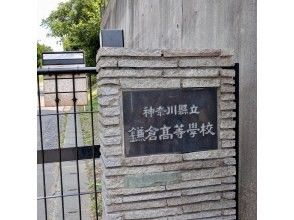
Kamakura High School Kamakura High School is located in Kamakura, Kanagawa Prefecture, Japan, and is the prototype of Reinan High School in "Slam Dunk". The intersection near the station is the location of the classic scene where Sakuragi Hanamichi greets Akagi Haruko. Standing at the intersection, the sound of the bells ringing also brings to mind the hot youthful memories of Slam Dunk. Now, many years later, when we come here, we can't help but take photos as if to commemorate our youthful days. . It feels like what we are witnessing is not a memory. The sea, that campus, and that streetscape in Slam Dunk are very important to people born in the 1980s. Because they can go to the places of their youthful memories and check them out, and they can relive the breath of youth as if they were young. For a while, they can calm down. There is one more reason to say bye-bye.
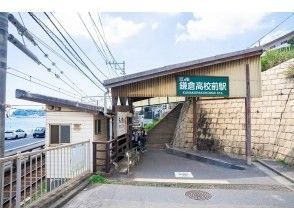
Kamakura High School Kamakura High School is located in Kamakura, Kanagawa Prefecture, Japan, and is the prototype of Reinan High School in "Slam Dunk". The intersection near the station is the location of the classic scene where Sakuragi Hanamichi greets Akagi Haruko. Standing at the intersection, the sound of the bells ringing also brings to mind the hot youthful memories of Slam Dunk. Now, many years later, when we come here, we can't help but take photos as if to commemorate our youthful days. . It feels like what we are witnessing is not a memory. The sea, that campus, and that streetscape in Slam Dunk are very important to people born in the 1980s. Because they can go to the places of their youthful memories and check them out, and they can relive the breath of youth as if they were young. For a while, they can calm down. There is one more reason to say bye-bye.
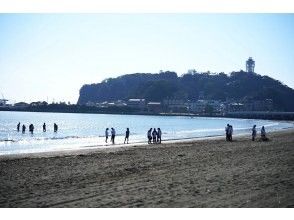
Enoshima The origin of Enoshima is said to be in April of the 13th year of Emperor Kinmei's reign (552), when sand welled up from the ocean floor, and 21 days later, the sand island was formed. The Enryakuji Temple on Mount Hiei has a moving legend about the formation of the island, which says that long ago, within 40 miles of Tsumura (present-day Kamakura City), there was a large lake. A five-headed evil dragon lived in the lake, which caused landslides and landslides, the spread of disease, floods and typhoons.
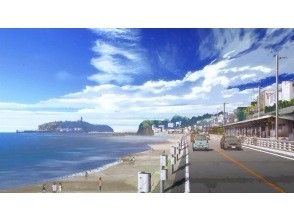
Enoshima The origin of Enoshima is said to be in April of the 13th year of Emperor Kinmei's reign (552), when sand welled up from the ocean floor, and 21 days later, the sand island was formed. The Enryakuji Temple on Mount Hiei has a moving legend about the formation of the island, which says that long ago, within 40 miles of Tsumura (present-day Kamakura City), there was a large lake. A five-headed evil dragon lived in the lake, which caused landslides and landslides, the spread of disease, floods and typhoons.
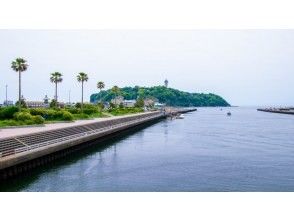
Enoshima The origin of Enoshima is said to be in April of the 13th year of Emperor Kinmei's reign (552), when sand welled up from the ocean floor, and 21 days later, the sand island was formed. The Enryakuji Temple on Mount Hiei has a moving legend about the formation of the island, which says that long ago, within 40 miles of Tsumura (present-day Kamakura City), there was a large lake. A five-headed evil dragon lived in the lake, which caused landslides and landslides, the spread of disease, floods and typhoons.
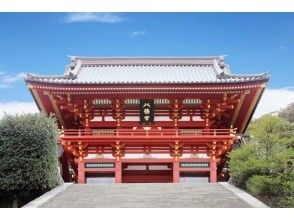
Tsurugaoka Hachimangu Shrine Tsurugaoka Hachimangu Shrine, formerly known as Kamakura Hachimangu Shrine, was the central religious center and patron saint of the samurai during the Kamakura Shogunate period (1192). It is also closely associated with the first Shogun of Kamakura and is quite famous in the Kanto region.
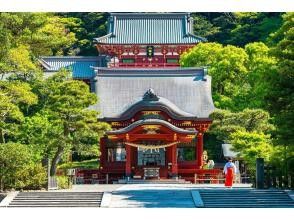
Tsurugaoka Hachimangu Shrine Tsurugaoka Hachimangu Shrine, formerly known as Kamakura Hachimangu Shrine, was the central religious center and patron saint of the samurai during the Kamakura Shogunate period (1192). It is also closely associated with the first Shogun of Kamakura and is quite famous in the Kanto region.
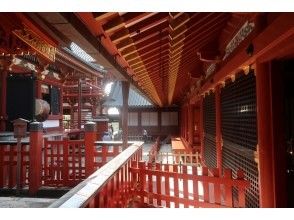
Tsurugaoka Hachimangu Shrine Tsurugaoka Hachimangu Shrine, formerly known as Kamakura Hachimangu Shrine, was the central religious center and patron saint of the samurai during the Kamakura Shogunate period (1192). It is also closely associated with the first Shogun of Kamakura and is quite famous in the Kanto region.
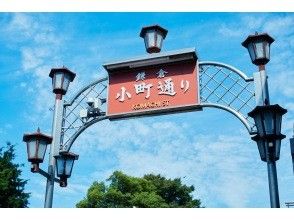
Komachi Street Komachi-dori: There are many famous gourmet restaurants featured on major websites and guidebooks. Don't miss it if you pass by.
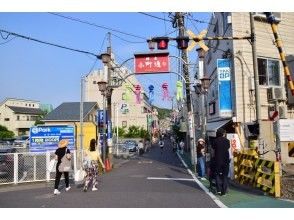
Komachi Street Komachi-dori: There are many famous gourmet restaurants featured on major websites and guidebooks. Don't miss it if you pass by.
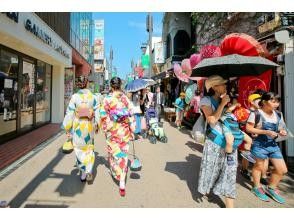
Komachi Street Komachi-dori: There are many famous gourmet restaurants featured on major websites and guidebooks. Don't miss it if you pass by.
Access - Map
1. Hotels and private lodgings in Shinjuku Ward, Chiyoda Ward, Chuo Ward, and Taito Ward can be picked up and dropped off directly. Other locations (5. Minato Ward, 6. Shibuya Ward, 7. Toshima Ward, 8. Nakano Ward, 9. Sumida Ward, 10. Koto Ward, 11. Bunkyo Ward, and 12. Edogawa Ward) require a second confirmation. *The bus departs on time. Please arrive with plenty of time (about 10 minutes before). Please adhere to the meeting and departure times and depart on time. The order and time of pick-up and drop-off will be arranged by the guide based on the situation, such as distance. Please understand and cooperate with each other and follow the guide's instructions.
All reviews 0Results
Q&A about this plan Ask question about this plan
Activity Provider of this plan
Selling points regarding safety
Application conditionsIf you are in poor health, use a wheelchair or other device, have a mental or physical disability, have an allergy to animals, are pregnant, or may be pregnant, or have a guide dog for the physically disabled (guide dog, hearing dog, or assistance dog), or require other special consideration, please inform us of your need for special consideration when applying. We will comply with your request to the extent possible and reasonable. In this case, you will be responsible for the costs of any special measures we take for you based on your request.
| Authorization issued by | Shizuoka Prefectural Governor Registration Travel Industry No. 2-633 |
|---|---|
| Insurance information | ANTA Liability insurance 5 million yen |
| License and Qualifications | The guide has a tour guide license. |
| Member organizations and associations | Travel Agency Registered by Shizuoka Prefecture Governor No. 2-633 JATA Japan Association of Travel Agents |
| Number of staff | 25 people |
| Number of instructors | 1 people |
![[13-person team, pick-up from city hotels] Departing from Tokyo! Kamakura Buddha, Tsurugaoka Hachimangu Shrine, Enoshima Day Tourの紹介画像](https://img.activityjapan.com/10/55530/10000005553001_ScXBXyxi_4.jpg?version=1722392102)
![[13-person team, pick-up from city hotels] Departing from Tokyo! Kamakura Buddha, Tsurugaoka Hachimangu Shrine, Enoshima Day Tourの紹介画像](https://img.activityjapan.com/11/55530/11000005553002_ScXBXyxi_4.jpg?version=1722392102)
![[13-person team, pick-up from city hotels] Departing from Tokyo! Kamakura Buddha, Tsurugaoka Hachimangu Shrine, Enoshima Day Tourの紹介画像](https://img.activityjapan.com/11/55530/11000005553003_ScXBXyxi_4.jpg?version=1722392102)
![[13-person team, pick-up from city hotels] Departing from Tokyo! Kamakura Buddha, Tsurugaoka Hachimangu Shrine, Enoshima Day Tourの紹介画像](https://img.activityjapan.com/11/55530/11000005553004_ScXBXyxi_4.jpg?version=1722392102)
![[13-person team, pick-up from city hotels] Departing from Tokyo! Kamakura Buddha, Tsurugaoka Hachimangu Shrine, Enoshima Day Tourの紹介画像](https://img.activityjapan.com/11/55530/11000005553005_ScXBXyxi_4.jpg?version=1722392102)
![[13-person team, pick-up from city hotels] Departing from Tokyo! Kamakura Buddha, Tsurugaoka Hachimangu Shrine, Enoshima Day Tourの紹介画像](https://img.activityjapan.com/11/55530/11000005553006_ScXBXyxi_4.jpg?version=1722392102)
![[13-person team, pick-up from city hotels] Departing from Tokyo! Kamakura Buddha, Tsurugaoka Hachimangu Shrine, Enoshima Day Tourの紹介画像](https://img.activityjapan.com/11/55530/11000005553007_ScXBXyxi_4.jpg?version=1722392102)
![[13-person team, pick-up from city hotels] Departing from Tokyo! Kamakura Buddha, Tsurugaoka Hachimangu Shrine, Enoshima Day Tourの紹介画像](https://img.activityjapan.com/11/55530/11000005553008_ScXBXyxi_4.jpg?version=1722392102)
![[13-person team, pick-up from city hotels] Departing from Tokyo! Kamakura Buddha, Tsurugaoka Hachimangu Shrine, Enoshima Day Tourの紹介画像](https://img.activityjapan.com/11/55530/11000005553009_ScXBXyxi_4.jpg?version=1722392102)
![[13-person team, pick-up from city hotels] Departing from Tokyo! Kamakura Buddha, Tsurugaoka Hachimangu Shrine, Enoshima Day Tourの紹介画像](https://img.activityjapan.com/11/55530/11000005553010_ScXBXyxi_4.jpg?version=1722392102)
![[13-person team, pick-up from city hotels] Departing from Tokyo! Kamakura Buddha, Tsurugaoka Hachimangu Shrine, Enoshima Day Tourの紹介画像](https://img.activityjapan.com/11/55530/11000005553011_ScXBXyxi_4.jpg?version=1722392102)
![[13-person team, pick-up from city hotels] Departing from Tokyo! Kamakura Buddha, Tsurugaoka Hachimangu Shrine, Enoshima Day Tourの紹介画像](https://img.activityjapan.com/11/55530/11000005553012_ScXBXyxi_4.jpg?version=1722392102)
![[13-person team, pick-up from city hotels] Departing from Tokyo! Kamakura Buddha, Tsurugaoka Hachimangu Shrine, Enoshima Day Tourの紹介画像](https://img.activityjapan.com/11/55530/11000005553013_ScXBXyxi_4.jpg?version=1722392102)
![[13-person team, pick-up from city hotels] Departing from Tokyo! Kamakura Buddha, Tsurugaoka Hachimangu Shrine, Enoshima Day Tourの紹介画像](https://img.activityjapan.com/11/55530/11000005553014_ScXBXyxi_4.jpg?version=1722392102)
![[13-person team, pick-up from city hotels] Departing from Tokyo! Kamakura Buddha, Tsurugaoka Hachimangu Shrine, Enoshima Day Tourの紹介画像](https://img.activityjapan.com/11/55530/11000005553015_ScXBXyxi_4.jpg?version=1722392102)
![[13-person team, pick-up from city hotels] Departing from Tokyo! Kamakura Buddha, Tsurugaoka Hachimangu Shrine, Enoshima Day Tourの紹介画像](https://img.activityjapan.com/11/55530/11000005553016_ScXBXyxi_4.jpg?version=1722392102)
![[13-person team, pick-up from city hotels] Departing from Tokyo! Kamakura Buddha, Tsurugaoka Hachimangu Shrine, Enoshima Day Tourの紹介画像](https://img.activityjapan.com/11/55530/11000005553017_ScXBXyxi_4.jpg?version=1722392102)
![[13-person team, pick-up from city hotels] Departing from Tokyo! Kamakura Buddha, Tsurugaoka Hachimangu Shrine, Enoshima Day Tourの紹介画像](https://img.activityjapan.com/11/55530/11000005553018_P3BiVCAd_4.png?version=1722392102)
![[Day trip/Pick-up from city hotels] Kobe night view and outlets: Have a wonderful night!](https://img.activityjapan.com/10/55492/10000005549201_P3BiVCAd_2.jpg?version=1722482462)
![[Pick-up from city hotels] Kobe night view and city sightseeing: Have a wonderful night!](https://img.activityjapan.com/10/55624/10000005562401_P3BiVCAd_2.jpg?version=1728880325)
![[Day trip] Kobe night view and city sightseeing: Have a wonderful night!](https://img.activityjapan.com/10/55503/10000005550301_P3BiVCAd_2.jpg?version=1728880384)
![[Amanohashidate] Ine Funaya & Kyoto Gassho Village Miyama Thatched House Day Tour | Departing from Osaka](https://img.activityjapan.com/10/56281/10000005628101_KGckTMmm_2.jpg?version=1730786645)
![[Oita Tourism] Yufuin/Kyushu Natural Zoo/Zoo/Umi Jigoku/Kajigoku/Trip with children (Departing from Fukuoka)](https://img.activityjapan.com/10/56283/10000005628301_P3BiVCAd_2.jpg?version=1726646525)
![[Kyushu] Day trip to Jingu Shrine, Amanoiwato Shrine, and Takachiho Gorge | Departing from Fukuoka](https://img.activityjapan.com/10/56297/10000005629701_P3BiVCAd_2.jpg?version=1730786882)
![[Kumamoto Castle] Aso Volcano Senri | Aso Boy Sightseeing Train Experience Day Tour | Departing from Fukuoka | Departing from Kumamoto](https://img.activityjapan.com/10/56300/10000005630001_P3BiVCAd_2.jpg?version=1730966223)
![[Day trip/Pick-up from city hotels] Popular tour of the whirlpools of Awaji Island and Naruto](https://img.activityjapan.com/10/55719/10000005571901_P3BiVCAd_2.jpg?version=1723014424)
![[Day trip/Pick-up from city hotels] MIHO MUSEUM, Lake Biwa Torii](https://img.activityjapan.com/10/55718/10000005571801_P3BiVCAd_2.jpg?version=1723011666)
![[Day trip] Mt. Fuji B course: Mt. Fuji, Lake Kawaguchi, Lake Yamanaka, hot springs](https://img.activityjapan.com/10/55455/10000005545501_P3BiVCAd_2.jpg?version=1727762102)
![[Kanagawa/Kamakura] "Tea ceremony experience" Choose your favorite kimono and wear it at a long-established kimono store founded in the Meiji era. Why not wear a kimono and make tea while enjoying the feeling of being at a tea ceremony?](https://img.activityjapan.com/10/53138/10000005313801_l6mkfGfX_2.JPG?version=1711359662)
![[Kamakura] Custom-made 10-hour day tour in a sightseeing hire car with a private driver](https://img.activityjapan.com/10/52124/10000005212401_k0F3sRj8_2.jpg?version=1701827405)
![[Kanagawa, Yuigahama Intermediate to advanced users! ] Windsurfing step up three times course](https://img.activityjapan.com/10/4989/10000000498901_vZvOLMBt_2.jpg?version=1508246953)
![[Shonan/Kamakura] Amadai gomoku fishing plan on a shared boat-beginners, women and children are welcome! Empty-handed OK!](https://img.activityjapan.com/10/46859/10000004685901_ugUeQoPt_2.jpeg?version=1676518624)
![[Kanagawa/Kamakura] Kimono rental plan with location photo shoot! Data delivery of 50 cuts in 1 hour!](https://img.activityjapan.com/10/40677/10000004067701_y8RiK5XN_2.jpg?version=1706673549)